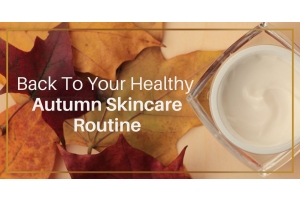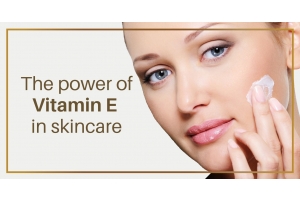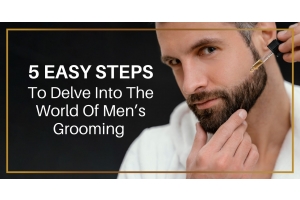Our partners and us collect data and use cookies, email pixels and similar tools to enhance your experience, analyse traffic and for ad personalisation and measurement. One such partner is Google. For more information see our cookie policy
Have sun-safe summers ahead by protecting your skin!

Whether you’re outdoors for work or you are vacationing at a beach or park, it’s essential to protect your skin with the right sunscreen. Most of us enjoy spending time outdoors and spending extended hours often leaves our skin vulnerable to the harsh effects of sun damage. I agree the sun is a vital source of Vitamin D, but the timing and duration of sun exposure drastically affects your skin. Continuous exposure to sun rays and UV radiation can cause skin issues like skin damage, wrinkles, hyperpigmentation, sunburn, tanning, and even increase the risk of skin cancer.

It’s no secret that using good sunscreen is essential for healthy and glowing skin all year long. But there’s a lot that goes into buying the right sunscreen for yourself. As it is not a one-size-fits-all skincare product, the type of sunscreen varies according to people. In some cases, you may need to wear normal sunscreen daily, while for others you might need an oil-free lotion sunscreen, water-resistant or even sweatproof protection, etc.

Choosing the right sunscreen that suits your skin can be overwhelming with many options and brands available on the market today, so here are a few tips to pick the right sunscreen for yourself:

Tinted Sunscreen SPF 30 Broad Spectrum UVA/UVB
One-of-a kind daily SPF protection with a slight tint that compliments all skin tones. 100% physical SPF 30 in silicone suspension for oil and water-free broad-spectrum protection.
1) Physical and Chemical Sunscreen: There are mainly 2 types of sunscreens, physical (mineral) & chemical (synthetic). Physical or mineral sunscreens mostly contain titanium dioxide and zinc oxide, which are best suited to those with inflamed skin or sensitive skin. In contrast, chemical or synthetic sunscreens contain different types of synthetic ingredients, including Octinoxate, Oxybenzone, Octisalate, & Avobenzone. These sunscreens are generally more lightweight & suit best for people with pigmentation or melisma.
2) Ingredients Matter: Be it a lotion-based or cream-based sunscreen, one of the most important aspects, when you look for sunscreen, should be, the ingredients used in it. Check the label and make sure the product doesn’t have any chemical that causes allergies to your skin. And mainly avoid sunscreens with Oxybenzone, as it is one of the most dangerous ingredients that can disrupt hormonal balance and cause an allergic reaction. Mostly, prefer something that contains organic, herbal, or natural clean ingredients rather than preferring a product that is loaded with chemicals.
3) Pay Attention to SPF (Sun Protection Factor): People have a misconception that after using high-SPF sunscreen it’s okay to spend more time in direct sunlight. But the fact is that no sunscreen is 100% effective, it’s just that using high SPF sunscreens can increase the amount of time you can stay outdoors. According to dermatologists, a person should use sunscreen with at least SPF 30 regularly. Under ideal conditions, sunscreen with higher SPF offers more protection against sunburn, UVA damage, and DNA damage. Recent research shows that SPF 100 when compared with SPF 50, makes a real difference in protecting your skin against burns and discoloration. Whatever your sunscreen SPF is, they don’t last any longer, so you need to reapply them just as often for better protection & best results

4) Prefer Broad Spectrum Sunscreen: Broad-spectrum sunscreens are widely used these days as they protect you against both UVB & UVA radiation. The 2 types of sun rays, mainly ultraviolet A & ultraviolet B, are primarily responsible for skin damage, and sunburns. So, while choosing a sunscreen make sure your sunscreen has a label “UVA/UVB protection,” “broad-spectrum” or “multi-spectrum”.
5) Type of Sunscreen: Preferring the type of sunscreen depends on your skin type and the areas of application. For example:
Creams: People with dry skin, mostly prefer using a cream
Lotions: When it comes to applying sunscreen to other areas rather than just your face, then lotions are preferred as they are less greasy than creams.
Gel: Gels work best in hairy areas of your body
Stick: Stick sunscreens are mostly used around the eyes
Matte-finish: If you have extremely oily skin, then prefer a matte-finish sunscreen so that your skin does not appear too oily post-application.

SPF 30 Sunscreen Stick
A natural sunscreen face stick that glides on smoothly and sinks into the skin effortlessly without the white residue. Formulated to be water resistant and reef safe. Jojoba, Sunflower and Vitamin E oils help moisturize and protect skin.
6) Water Resistance: When choosing the best sunscreen that suits your skin especially if it’s a sensitive skin type, then make sure the product is water-resistant or ‘waterproof’. Investing in water-based sunscreen instead of an oil-based one will make feel your skin light and won’t cause your skin to break out. If a sunscreen claims to be water-resistant, it must last atheist for a minimum of 40 to 80 minutes while you do activities like swimming, outdoor exercises, etc.
7) Try Beyond the basics: If you’re looking for a sunscreen that gets you beyond the necessities, then in addition make sure it has other related to critical ingredients like antioxidants which are highly effective, nourishing, and safe for your skin.
8) Avoid Allergens: Prone to skin rashes or breakouts? Avoid sunscreens with added fragrances, preservatives & parabens. People with skin conditions like rosacea should note to avoid sunscreens containing alcohol. If you’re someone with acne-prone skin, consult with your dermatologist before you choose any skin care product.
Bottom Line:
You can never afford to miss sunscreen. Sunshine is all good and helps us build levels of vitamin D, which is good for our health, bones, and even our mental health. But keep it to the limit. Sunscreen application is an important skincare habit that we all should practice or continue. So, people, keep these considerations in mind and enhance your sun protection strategy by applying the right sunscreen on your skin regularly.


 Qatar
Qatar Saudi Arabia
Saudi Arabia Oman
Oman Bahrain
Bahrain Kuwait
Kuwait



